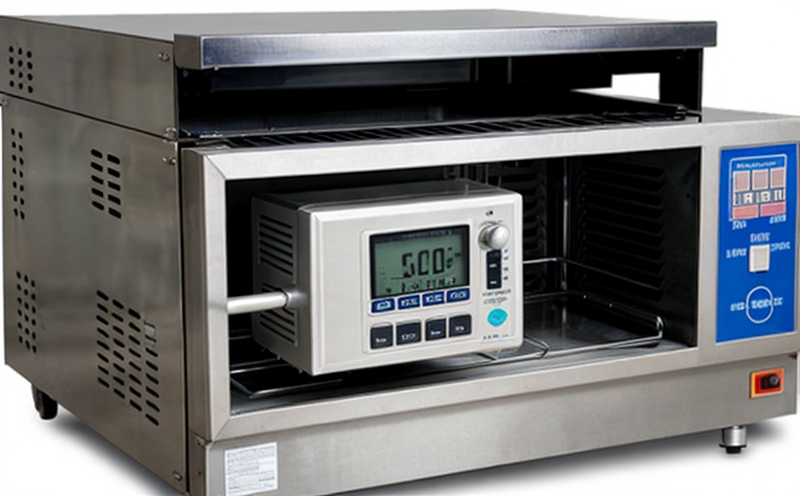Food temperature control inspection
In the realm of food safety and hygiene, ensuring proper food temperature control is paramount. Temperature plays a critical role in preventing the growth of pathogenic microorganisms that can cause illness or spoilage. This service ensures that food items are maintained at safe temperatures throughout production, storage, transport, and distribution stages.
The importance of this inspection cannot be overstated. According to the World Health Organization (WHO), unsafe temperatures contribute significantly to foodborne illnesses globally. Proper temperature control is essential in various sectors including manufacturing, retail, catering services, and even home environments. For instance, improper refrigeration can lead to bacterial growth which may result in significant economic losses due to product spoilage.
The service we offer involves a comprehensive approach to monitoring temperatures at multiple points during the food supply chain. This includes on-site inspections using calibrated thermometers and data loggers to record temperature readings at critical control points such as receiving, storage, preparation, and serving. Our team of experts ensures compliance with international standards like ISO 14025 for performance evaluation.
The impact extends beyond just preventing illness; it also enhances product quality by maintaining the integrity of flavors and textures throughout the supply chain. This service helps businesses maintain their reputation and trustworthiness among consumers who are increasingly concerned about safety and freshness.
Why It Matters
The significance of accurate food temperature control cannot be underestimated in terms of public health, business operations, and environmental sustainability. Here’s why this service matters:
- Public Health: Ensures that consumers receive safe products reducing the risk of foodborne illnesses.
- Business Operations: Helps in maintaining product quality thus enhancing customer satisfaction and loyalty.
- Environmental Sustainability: By minimizing waste through proper temperature management, businesses reduce their environmental footprint.
In today’s competitive market, businesses must comply with stringent regulations set by health authorities worldwide. Our service provides peace of mind knowing that your operations are in line with these requirements while also contributing positively to public health and the environment.
Scope and Methodology
| Aspect | Description |
|---|---|
| Receiving Temperatures | Check incoming shipments against agreed-upon temperature ranges to prevent spoilage. |
| Storage Conditions | Inspect refrigerators and freezers regularly for proper functioning and adherence to set temperatures. |
| Serving Temperatures | Verify that food items are served at the correct temperatures to ensure both safety and quality. |
The methodology encompasses a variety of techniques designed to assess various stages in the temperature control process. We utilize advanced technology including but not limited to digital thermometers, data loggers, and environmental sensors that provide real-time monitoring capabilities. This allows us to identify any discrepancies promptly so corrective actions can be taken immediately.
Environmental and Sustainability Contributions
The practice of maintaining appropriate food temperatures has far-reaching benefits for the environment as well. By reducing waste through efficient temperature control, businesses contribute significantly less to landfills. Additionally, by minimizing energy consumption during refrigeration processes, we help reduce carbon footprints.
Incorporating sustainable practices into our inspection methods ensures that customers receive not only safe but also environmentally friendly products. Our team works closely with clients to develop strategies aimed at reducing overall resource usage without compromising on quality or safety standards. This approach aligns perfectly with global initiatives towards a more sustainable future.





